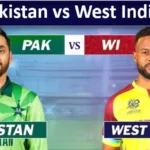European Leaders in Kyiv: A United Front Amidst Calls for Ceasefire
In a powerful display of European solidarity, the leaders of France, Germany, Poland, and the United Kingdom converged in Kyiv on Saturday, May 10, 2025, to meet with Ukrainian President Volodymyr Zelenskyy. This unprecedented joint visit by such a significant European delegation underscores the continent’s unwavering support for Ukraine as it continues to resist Russia’s full-scale invasion. The timing of the visit, just a day after Russia’s Victory Day parade in Moscow, carries considerable symbolic weight, sending a clear message of unity and resolve to the Kremlin.
European Delegation Kyiv: A Quartet of Support
The European delegation arriving in Kyiv comprised French President Emmanuel Macron, German Chancellor Friedrich Merz, Polish Prime Minister Donald Tusk, and British Prime Minister Keir Starmer. This marked the first time these four leaders had traveled to Ukraine together since the conflict began over three years prior. For Chancellor Merz, who had recenEuropean Leaders in Kyiv: The European delegation arriving in Kyiv comprised French President Emmanuel Macron, German Chancellor Friedrich Merz, Polish Prime Minister Donald Tusk, and British Prime Minister Keir Starmer.
This marked the first time these four European Leaders in Kyiv had traveled to Ukraine together since the conflict began over three years prior. For Chancellor Merz, part of the European Leaders in Kyiv gathering, who had recently assumed office, this was his first visit to Ukraine in his new role, adding another layer of significance to the collective show of support among these European Leaders in Kyiv. This visit by European Leaders in Kyiv underscores the importance of the moment.tly assumed office, this was his first visit to Ukraine in his new role, adding another layer of significance to the collective show of support.
Their arrival in Kyiv was met with the announcement of the “Bravery Express” on the platform, a symbolic gesture acknowledging Ukraine’s resilience. The leaders, accompanied by President Zelenskyy, immediately paid their respects at a memorial in central Kyiv dedicated to the Ukrainian soldiers who have fallen in the war, laying flowers and lighting candles at a makeshift flag memorial.
EU Leaders Ukraine Visit: Ratcheting Up Pressure

“The primary objective of this high-level visit, undertaken by European Leaders in Kyiv, was to reiterate Europe’s commitment to Ukraine’s sovereignty and territorial integrity and to intensify pressure on Russia to agree to a ceasefire. In a joint statement released ahead of their arrival, these European Leaders in Kyiv echoed calls from U.S. President Donald Trump for a 30-day unconditional ceasefire to pave the way for peace negotiations. This action by European Leaders in Kyiv demonstrates their unified stance. The hope of these European Leaders in Kyiv is a swift de-escalation. The commitment of European Leaders in Kyiv is evident in this visit.”
“Alongside the U.S., we call on Russia to agree a full and unconditional 30-day ceasefire to create the space for talks on a just and lasting peace,” the leaders stated. They emphasized their readiness to support peace talks as soon as possible, including discussing the technical aspects of implementing a ceasefire and preparing for a comprehensive peace agreement.
The statement firmly condemned Russia’s ongoing aggression, asserting, “We are clear the bloodshed must end, Russia must stop its illegal invasion, and Ukraine must be able to prosper as a safe, secure and sovereign nation within its internationally recognised borders for generations to come.” This commitment from European Leaders in Kyiv is resolute. Furthermore, European Leaders in Kyiv warned, “We will continue to increase our support for Ukraine. Until Russia agrees to an enduring ceasefire, we will ratchet up pressure on Russia’s war machine.” The resolve of European Leaders in Kyiv is evident in this stance. This message from European Leaders in Kyiv is clear, and the actions of European Leaders in Kyiv will reflect this.
Macron, Starmer, Merz in Kyiv: A Moment of Unity
The presence of Macron, Starmer, and Merz, alongside Prime Minister Tusk, in Kyiv highlighted a significant moment of European unity on the issue of Ukraine. Speaking to reporters in the Ukrainian capital, President Macron described the joint visit with Poland, Germany, and the United Kingdom as a “historic moment for European defense and toward a greater independence for our security. Obviously for Ukraine, but for all of us. It’s a new era.”
This collective appearance aimed to present a united European front in the face of Russia’s continued aggression, particularly following President Putin’s defiant tone during the Victory Day parade in Moscow. European Leaders in Kyiv, a French presidential official noted that the timing of the visit of European Leaders in Kyiv, just days after Chancellor Merz assumed office, “demonstrates Europe’s unity, strength, and responsiveness” of European Leaders in Kyiv and serves as a direct counterpoint to Putin’s celebrations. The presence of European Leaders in Kyiv highlights the importance of this meeting, where European Leaders in Kyiv collectively showed their support.
Ukraine Peace Talks Europe: The Ceasefire Push
The European leaders’ visit to Kyiv placed a significant emphasis on the urgent need for a ceasefire to initiate meaningful peace talks. Their joint call for a 30-day truce aligns with a proposal from President Trump, suggesting a concerted effort by both sides of the Atlantic to de-escalate the conflict.
However, the Kremlin has so far resisted these calls. In an interview on Saturday, Kremlin spokesman Dmitry Peskov stated that arms deliveries from Ukraine’s allies would need to cease before Russia could agree to a ceasefire, arguing that a truce under the current circumstances would benefit Ukraine, especially with Russian troops reportedly advancing on the front lines. Peskov also suggested that Ukraine was “not ready for immediate negotiations.”
Despite Russia’s apparent reluctance, the European leaders remain determined to explore all avenues for a peaceful resolution. Following their meeting with President Zelenskyy, they were scheduled to host a virtual meeting with other European leaders to discuss progress on the “coalition of the willing” and future security arrangements for Ukraine.
European Solidarity Kyiv: A Symbolic Stand
The gathering of European leaders in Kyiv served as a powerful symbol of European solidarity with Ukraine. More than three years into Russia’s invasion, this joint visit represents a tangible demonstration of the continent’s commitment to standing alongside Ukraine in the face of aggression.
The leaders’ visit to the memorial for fallen Ukrainian soldiers underscored the human cost of the conflict and the importance of achieving a lasting peace. Their pledge to continue increasing pressure on Russia until a ceasefire is agreed upon signals a long-term commitment to Ukraine’s cause.
Kyiv Summit European Leaders: Forging a Future
While in Kyiv, the European leaders also focused on the longer-term security architecture for Ukraine. They discussed the concept of a “coalition of the willing,” an initiative aimed at creating a European force that could help regenerate Ukraine’s armed forces after a peace deal and potentially contribute to policing any future peace agreement.
A statement from Prime Minister Starmer’s office described this initiative as “a future coalition of an air, land, maritime and regeneration force that would help regenerate Ukraine’s armed forces after any peace deal and strengthen confidence in any future peace.” The virtual meeting with other European leaders was intended to further these discussions and build broader support for this vision.
Europe Support Ukraine: Beyond the Immediate Crisis
Europe’s support for Ukraine extends beyond the immediate calls for a ceasefire. The European Union has consistently provided significant financial, military, and humanitarian aid to Ukraine. Most recently, the European Commission disbursed an additional €1 billion tranche of its Macro-Financial Assistance (MFA) loan to Ukraine, utilizing proceeds from immobilized Russian State assets.
This financial assistance is part of a broader G7-led Extraordinary Revenue Acceleration (ERA) initiative aimed at providing substantial support to Ukraine. The EU’s commitment includes not only addressing Ukraine’s urgent budgetary needs but also supporting its long-term recovery and reconstruction efforts.
Furthermore, the EU continues to work closely with Ukraine on its path towards potential EU membership, recognizing the country’s dedication to reforms even amidst the ongoing conflict.
Leaders Meeting Zelenskyy: Discussing the Path Forward
The direct meeting between the European leaders and President Zelenskyy was crucial for discussing Ukraine’s immediate needs and its vision for a future peace. Zelenskyy has consistently emphasized the need for a just and lasting peace, one that respects Ukraine’s sovereignty and territorial integrity.
During the meeting, the leaders likely discussed the specifics of the proposed 30-day ceasefire, including potential mechanisms for its implementation and verification. They also likely addressed Ukraine’s ongoing requirements for military and financial assistance to sustain its defense efforts.
President Zelenskyy has underscored the importance of international support in achieving a resolution to the conflict, emphasizing that peace cannot simply be wished into existence but requires concrete actions and guarantees.
Ceasefire Talks Kyiv: Obstacles and Opportunities
While the European leaders’ visit to Kyiv aimed to advance the prospects of a ceasefire, significant obstacles remain. Russia’s insistence on the cessation of arms deliveries as a precondition and its assessment that Ukraine is not currently inclined towards negotiations present considerable challenges.
However, the unified stance of France, Germany, Poland, and the United Kingdom, coupled with the backing of the United States, creates a window of opportunity to exert greater diplomatic pressure on Moscow. The technical aspects of implementing and monitoring a ceasefire, as well as the framework for subsequent peace negotiations, will be critical areas of discussion.
President Macron’s statement that talks about territory could potentially be held once a ceasefire begins suggests a willingness to explore complex issues as part of a broader peace process.
Coalition of the Willing Ukraine: A Future Security Architecture
The concept of a “Coalition of the Willing” signifies a proactive approach by European nations to ensure Ukraine’s long-term security. This initiative aims to go beyond immediate military aid and consider the necessary structures and forces to maintain peace and stability in the region following a potential resolution to the conflict.
Discussions surrounding the coalition have involved the potential deployment of a European-led military force to monitor a peace agreement and assist in the regeneration of Ukraine’s armed forces. While the specifics are still under discussion, the commitment to developing such a coalition demonstrates Europe’s understanding that a lasting peace requires robust security guarantees.
Recent discussions have also focused on training Ukrainian soldiers and rearming the Ukrainian military as key components of this future security architecture, acknowledging the limitations some European nations face in deploying large military contingents.
Conclusion: A Renewed Push for Peace
The visit of the European leaders to Kyiv on May 10, 2025, represents a significant moment in the ongoing efforts to support Ukraine and seek an end to the conflict. Their unified call for a 30-day ceasefire, coupled with the exploration of a long-term security coalition, signals a renewed push for peace and stability in Europe.
While the path to a lasting resolution remains challenging, this demonstration of European solidarity and commitment provides a crucial foundation for future diplomatic endeavors. The leaders’ unwavering support for Ukraine and their determination to increase pressure on Russia underscore the continent’s resolve to stand by Ukraine until a just and enduring peace is achieved. The coming days and weeks will be critical in assessing Russia’s response to these calls and the potential for a de-escalation of the conflict










